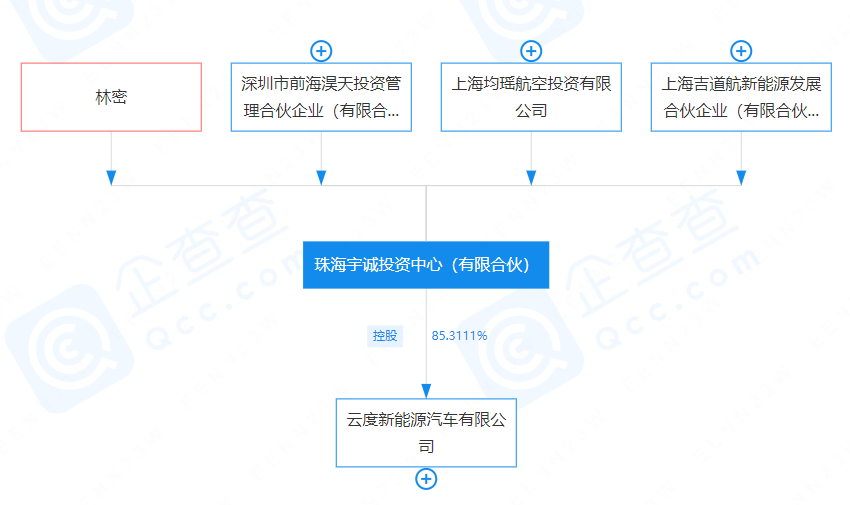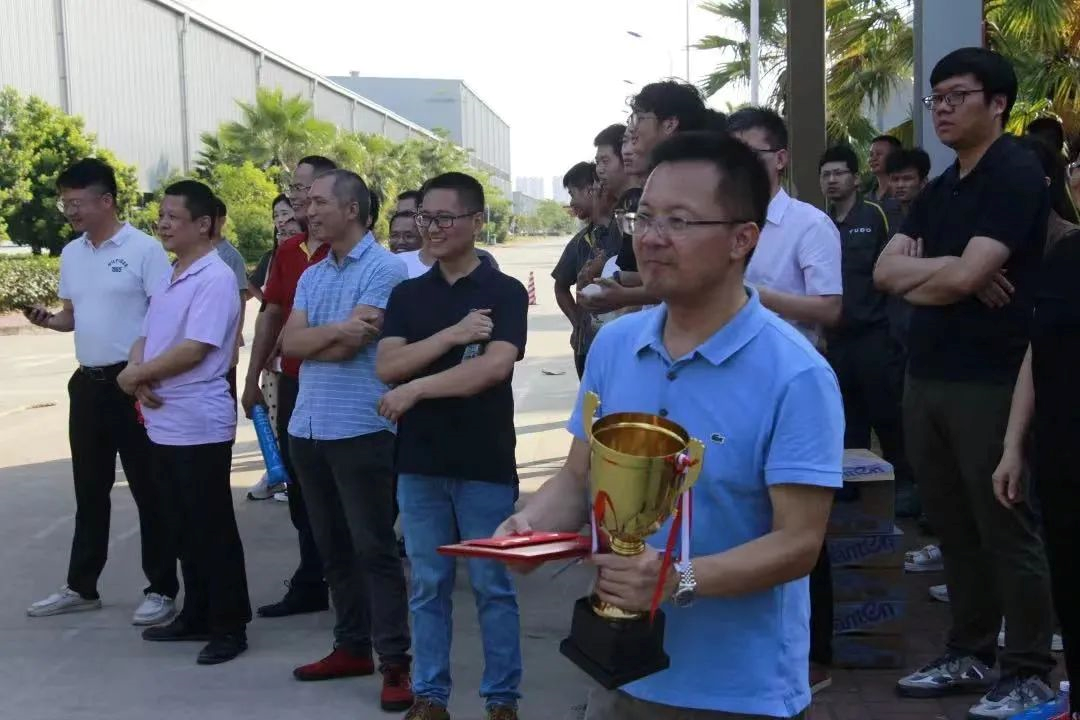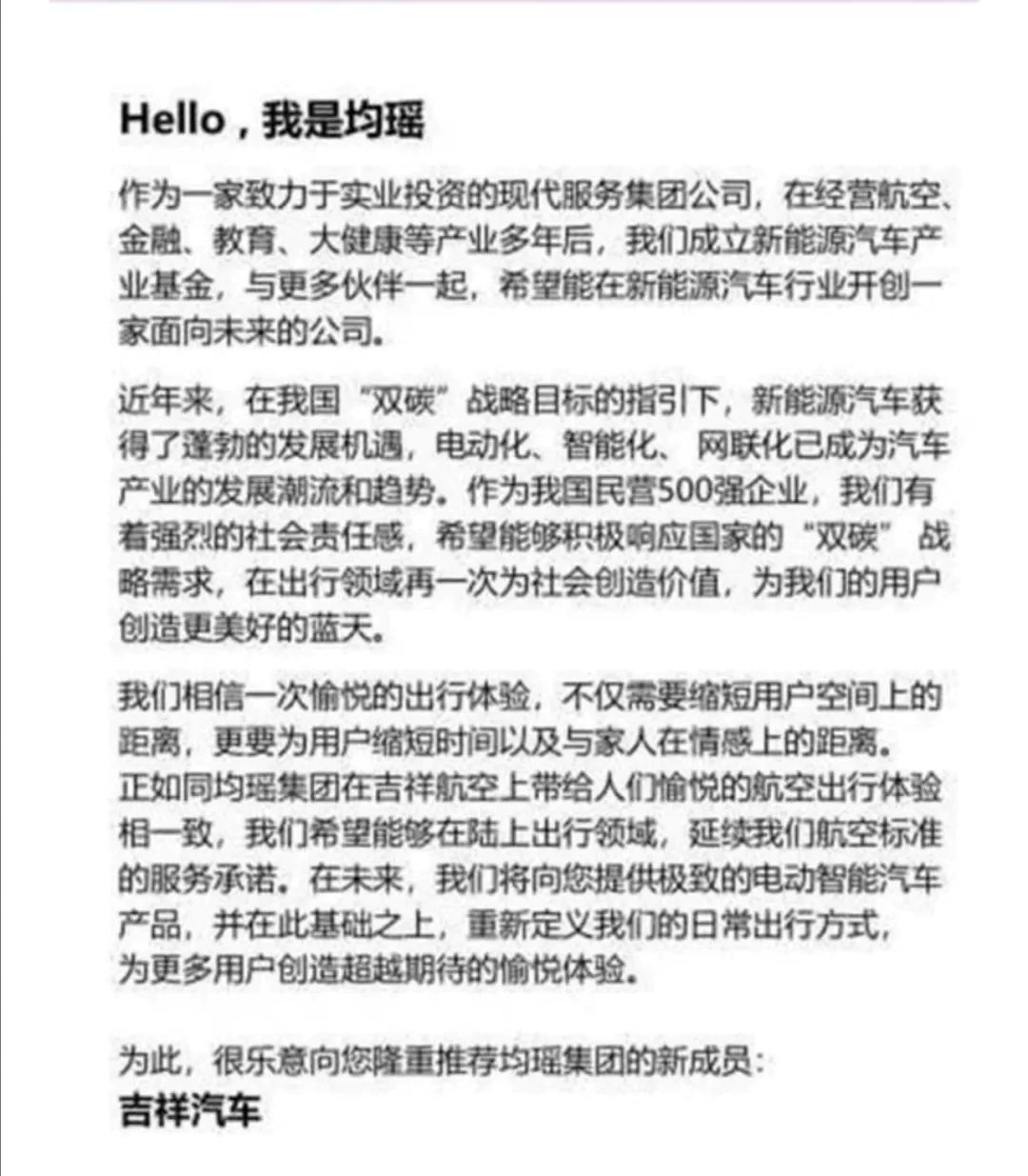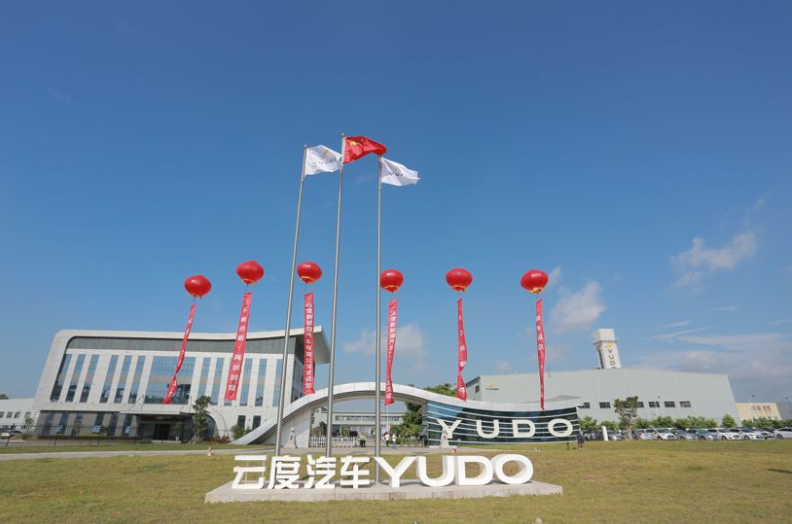Author: Qiu Kaijun
One of the earliest new forces in China’s automobile industry, Yunnei New Energy, recently completed a change in major shareholders. JY Group, known for its private aviation business, has become the new major shareholder and has begun to promote the resumption of work and production at Yunnei New Energy.
On July 26th, Yunnei New Energy’s first new car model, π1 LITE, was officially launched after the resumption of work and production. Several leaders from Putian City witnessed the launch of the new model in Yunnei New Energy’s assembly workshop.
Following the launch ceremony, Fu Chaoyang, secretary of the Putian Municipal Party Committee, had an in-depth conversation with the relevant person in charge of Yunnei New Energy about advancing the resumption of work and other matters. Fu Chaoyang also said: “This cooperation has the right time, the right place, and the right people. Yunnei’s future is promising, and Putian’s future is promising.”
“This cooperation” refers to JY Group’s acquisition of Yunnei New Energy. According to business information, Yunnei New Energy’s major shareholder, Zhuhai Yu Cheng Investment Center, has added two new shareholders: Shanghai JY Aviation Investment Co., Ltd. and Shanghai Jidao Hangxin New Energy Development Partnership Enterprise, both of which are subsidiaries of JY Group.
Lin Mi, the former CEO of Yunnei New Energy, is still a director of the company.
Currently, JY Group has appointed a new chairman and general manager for Yunnei New Energy. Wang Jinglong, the chairman, was formerly the deputy financial director of Shanghai JY, and Wei Yong, the general manager, was previously the chief engineer of SAIC-GM-Wuling Automobile’s technical center.
However, apart from Lin Mi, there have been few adjustments to the middle and high-level management of Yunnei New Energy. The newly launched car model is also the previously planned π1 LITE, and this year’s goal is only to produce 2,000 cars to maintain the qualification.
After JY Group’s acquisition of Yunnei New Energy, how will it be integrated into their complex business empire? What is JY Group’s automotive layout?
JY Group, “the white knight”, would have been the most eye-catching new force in the car-making industry if we went back five years in time, not Wei Xiaoli. Yunnei was established in December 2015. Just 13 months later, Yunnei was registered with the National Development and Reform Commission, and in July 2017, it obtained a production license for new energy vehicles from the Ministry of Industry and Information Technology – becoming one of the earliest companies to obtain the new license. Yunnei was also the earliest new force to start mass production. In October 2017, its first model, π1, was released, followed by the π3 in March 2018. That year, Yunnei delivered 9,300 units with a 100% delivery rate, making it one of the earliest and most successful new energy vehicle enterprises.Notwithstanding, Yunduo’s momentum has been insufficient. While other automakers continuously launch new models, Yunduo’s competitiveness has been shown to be inadequate for its π1 and π3 models, and it has failed to keep pace with the adjustment of subsidy policies, resulting in a continuous decline in sales. The π7 model was not launched after its debut, and there was no further news regarding the remaining planned models. Amidst this predicament, the team became divided, with a number of high-level executives, such as Lin Mi, leaving in succession.
In the first half of 2020, compounded by the impact of the COVID-19 pandemic, Yunduo’s situation became even worse, with reports of pay cuts and layoffs. In May 2020, with the support of Putian state-owned assets, Lin Mi returned as CEO with an investment from Xinwangda, and recruited a group of key personnel to resume production on the one hand and continue financing on the other. During this period, Yunduo launched updated versions of the π1 and π3 models, but sales did not improve. Due to a broken funding chain, Yunduo ceased production again in February 2022.
The team and shareholders have been seeking new funding injection all along. There have been many enterprises, including Xiaomi Automobile and FAW, expressing their intention to participate in the acquisition. In the end, it was Lava Auto that became the “white knight” for Yunduo.
In April 2022, there were reports that Lava Group would become Yunduo’s largest shareholder. On June 24th, the change in industrial and commercial registration information showed that the original shareholder, Zhuhai Yucheng Investment Center, increased its paid-in capital by eight billion yuan, becoming the largest shareholder, and the legal representative changed as well.
Specifically, the major shareholder Zhuhai Yucheng Investment Center introduced two shareholders, Shanghai Junyao Aviation Investment Co., Ltd, and Shanghai Jidaohang New Energy Development Partnership Enterprise, at almost the same time, and the legal representative of the company was also changed. Both new shareholders belong to the Shanghai Junyao Group. Based on information such as registered capital, Junyao Group is expected to hold 80% of the shares, and the original shareholders will hold a total of 20%.

Thus, Yunduo New Energy has transformed from a local state-owned enterprise into a company controlled by private Junyao Group.
The valuation of Junyao’s equity participation was not disclosed. On April 12th, before Junyao entered, one of the original shareholders, Hainan OYSTE Composite Materials, transferred its 11% shares to Zhuhai Yucheng Investment Center for only RMB 22 million, representing a total valuation of only RMB 200 million for the company.
Junyao holds 80% of the shares at a cost of eight billion yuan in paid-in capital, but the actual amount of investment remains unclear.
Restarting, but without major moves
Starting on June 6th, Yunduo’s internal public account, “Yunduoer,” began publishing a series of pictures and texts called “Full Effort to Restart,” showing that the company had begun to resume production and work.
On July 26th, the first car produced after Yunduo’s restart was completed, indicating that Junyao Group’s efforts to revive Yunduo were beginning to bear fruit.
However, according to insiders familiar with Yunduo, Junyao’s strategy for Yunduo currently focuses mainly on maintaining the company’s qualification and has no major moves planned yet.In terms of products, Yundu will focus on promoting the π1 LITE with a goal of 2,000 units this year. It is expected to launch a modified version of the π1 as well as a new sports car next year.
As for the team, Wang Jinglong is the legal representative who has long served in financial positions of subsidiaries of Jun Yao Group. Wei Yong, the general manager stationed by Jun Yao to Yundu, is responsible for more matters.
Wei Yong has previously served as the chief engineer of the technical center of SAIC-GM-Wuling Automobile Co., Ltd, with experience in chassis development, supply chain management, and technical management. His mission is to restart production and supply at Yundu.

However, currently, other middle and high-level executives at Yundu seem to have no action.
Although Lin Mi is still a company director, he has already faded out of daily business management. Several executives, including Vice General Managers Chen Ming, Hu Dianzhu, and Cao Gang, are still in their positions.
However, at present, Yundu seems to have become a factory for Jun Yao Group in Shanghai. How to play its role remains to be seen in Jun Yao’s plans.
Aiming for “Jixiang” (Auspiciousness)?
“We are delighted to introduce Jun Yao Group’s new member: Jixiang Motors.”
Recently, a screenshot of Jun Yao Group showed that the company is advancing into the automotive field: “In the future, we will provide you with ultimate electric intelligent car products.”

Jun Yao Group’s main business is in aviation, but its business is very broad, and it has been involved in the automotive and travel fields for a long time.
In 1998, Jun Yao Group once paid an astronomical price of 688,000 yuan to buy the permanent operation rights for nearly 100 taxis in Wenzhou, entering the travel industry at an early stage.
One of the listed companies under Jun Yao Group, Dadi Oriental, previously sold cars as its main business. Seeing that the situation was not good with traditional cars, Dadi Oriental divested 51% of its shares, but still holds a 49% stake in car sales valued at 1 billion yuan.
Almost at the same time as acquiring Yundu, Jun Yao Group also established a company – Shanghai Jixiang Zhiqu New Energy Vehicle Co., Ltd.
The registered capital of this company is 1 billion yuan, and its business scope includes sales of new energy vehicles, technical services, technical development, energy storage technology services, sales of charging piles, infrastructure operation, etc.
The combination of Jixiang Zhiqu and Yundu should have their own directions. A simple guess is that Jun Yao Group will use Jixiang Zhiqu as the main body for research and development, production, and operation, while Yundu will assume the responsibility of production.The Wang Family of Junyao Group, also famous Zhejiang merchants. Li Shufu, also a Zhejiang merchant, has built a Geely Automotive empire, buying many brands and making them “Geelyfied”. Can Junyao Group, with its “Jinxiang” brand transitioning from aviation to automobiles, also pave a new way forward and bring along Yundu?
This article is a translation by ChatGPT of a Chinese report from 42HOW. If you have any questions about it, please email bd@42how.com.
